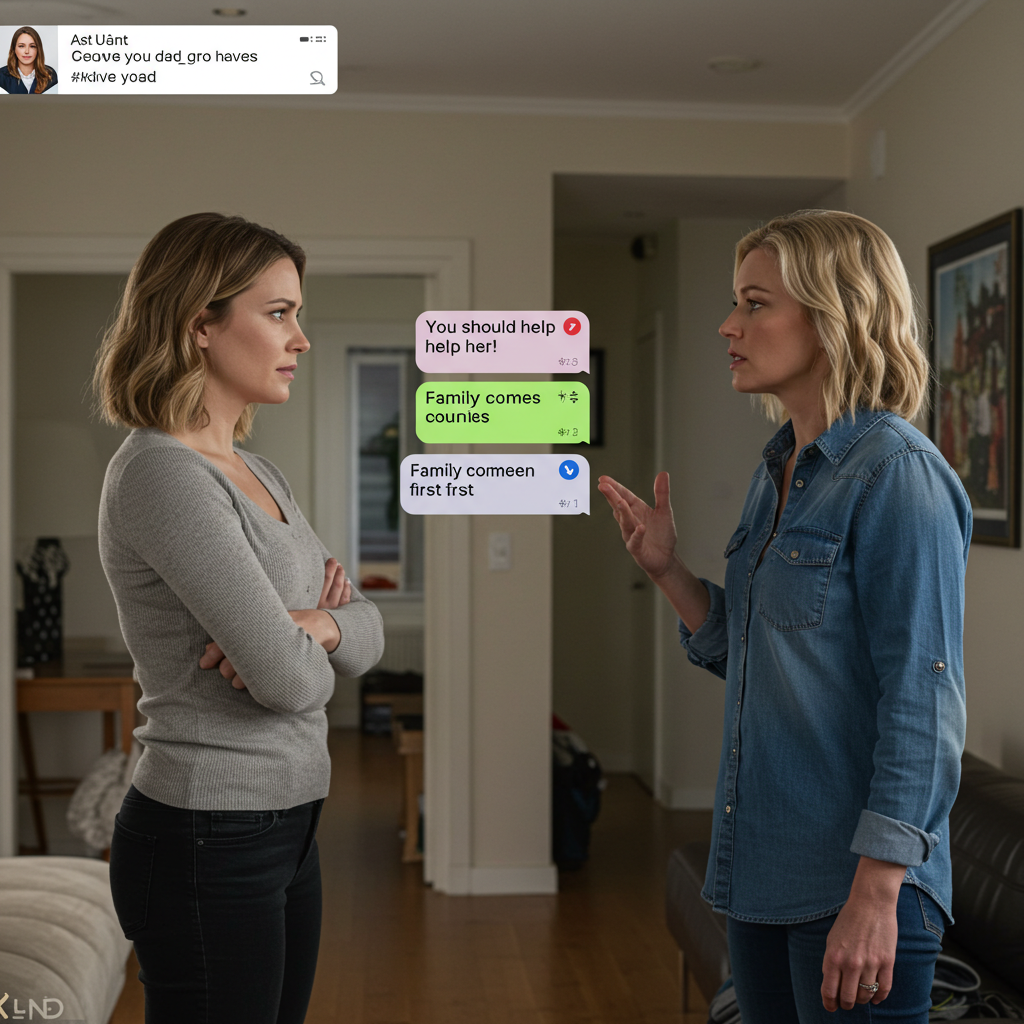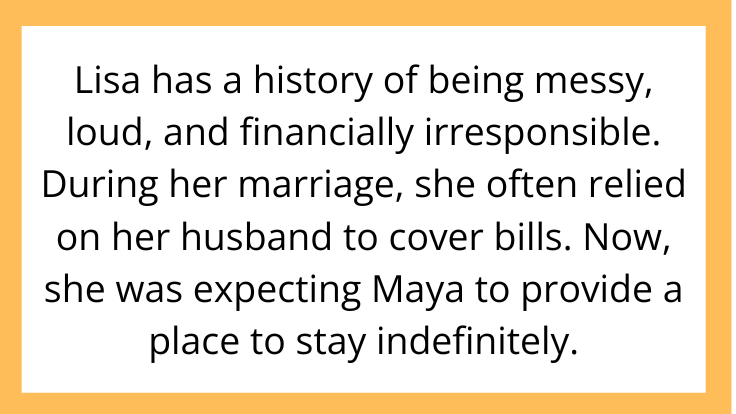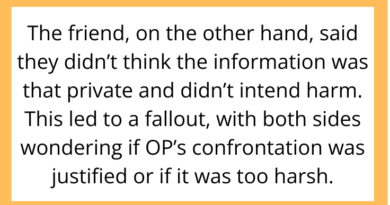AITAH for Refusing to Let My Sister Move Into My Apartment After Her Divorce?
When family members hit hard times, it’s natural to want to help. But where should you draw the line between compassion and protecting your own space? Today’s AITAH scenario tackles a situation that’s all too relatable: a recently divorced sibling in need of a place to stay—and the fallout when you say no.
Let’s break down what happened and whether setting a boundary makes someone heartless.
The Situation: A Fresh Divorce and an Expectation of Rescue

The original poster (let’s call her Maya), a 29-year-old woman, shared on r/AITAH that her older sister, Lisa, 34, recently went through a difficult divorce. After leaving her husband, Lisa had nowhere to go and immediately turned to Maya for help.
Maya lives alone in a two-bedroom apartment that she rents in the city. She works remotely and values the quiet space she’s created for herself. When Lisa asked if she could move in “just until she gets back on her feet,” Maya hesitated.
Lisa has a history of being messy, loud, and financially irresponsible. During her marriage, she often relied on her husband to cover bills. Now, she was expecting Maya to provide a place to stay indefinitely.
Maya offered to help pay for a short-term rental or contribute toward Lisa’s moving costs, but she drew the line at sharing her apartment.
Lisa was devastated. She accused Maya of being a bad sister, selfish, and unsupportive during a crisis. The rest of the family soon got involved, bombarding Maya with calls and texts telling her she should be there “no matter what.”
Feeling guilty, but also resentful, Maya turned to Reddit: Am I the villain here?
The Arguments: Family Obligation vs. Personal Boundaries

Why People Think Maya Is Right
Many commenters rallied behind Maya’s decision to protect her space and mental health.
Here are some of the most common points in her defense:
-
History Matters: Lisa has shown patterns of behavior—messiness, irresponsibility—that could quickly turn Maya’s apartment into chaos.
-
Indefinite Timeline: “Until I get back on my feet” often drags on much longer than planned.
-
Financial Support Offered: Maya didn’t abandon Lisa completely—she offered help in other ways that wouldn’t compromise her own stability.
-
Boundaries Are Healthy: Just because you love someone doesn’t mean you have to sacrifice your peace and well-being.
As one commenter put it:
“You can care without setting yourself on fire to keep someone else warm.”
Why Others Think Maya Is Wrong
Some people sided with Lisa and the family, arguing that:
-
Family Comes First: In difficult times, you’re supposed to step up, especially for a sibling.
-
Temporary Sacrifice: Even if Lisa is messy, she’s in crisis, and a few months of inconvenience could mean everything to her.
-
We All Need Help Sometimes: Just because Maya is more stable doesn’t mean she should turn her back on someone who has no options.
These commenters saw Maya’s refusal as prioritizing comfort over compassion.
The Bigger Issue: When Helping Crosses a Line

This isn’t just about sharing an apartment. It’s about how much of yourself you owe to others, and when helping them stops being supportive and starts being self-destructive.
Maya is allowed to prioritize her own needs. That doesn’t mean she loves her sister any less. It means she understands her own limits.
At the same time, Lisa’s pain and desperation are real. Divorce can upend someone’s entire life overnight.
This is the messy truth about family: Sometimes, no solution feels truly fair to everyone.
What Could Maya Have Done Differently?

Some readers suggested compromises that might have helped avoid the blow-up:
-
Offer a Timeline: A fixed, short-term stay (e.g., 2 weeks) with clear expectations.
-
Written Agreement: Boundaries around cleaning, noise, and finances in writing.
-
Rotating Support: Other family members taking turns housing Lisa.
-
Professional Mediation: A family counselor or mediator to navigate expectations.
But ultimately, if Maya knew in her gut that sharing her apartment would damage her mental health or their relationship long-term, it’s okay to say no.
Takeaway: Saying “No” Doesn’t Make You the Villain

One of the hardest parts of adulthood is learning that you can be compassionate without being a martyr. You can help in ways that align with your values and your capacity—and sometimes, that still won’t be enough for other people.
Maya isn’t the villain for knowing her limits. Lisa isn’t the villain for feeling hurt. But neither one is obligated to sacrifice everything for the other.



